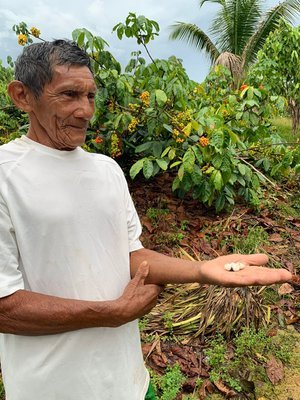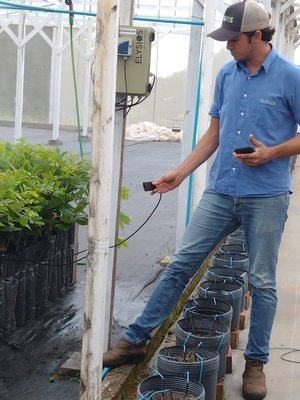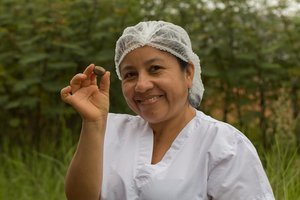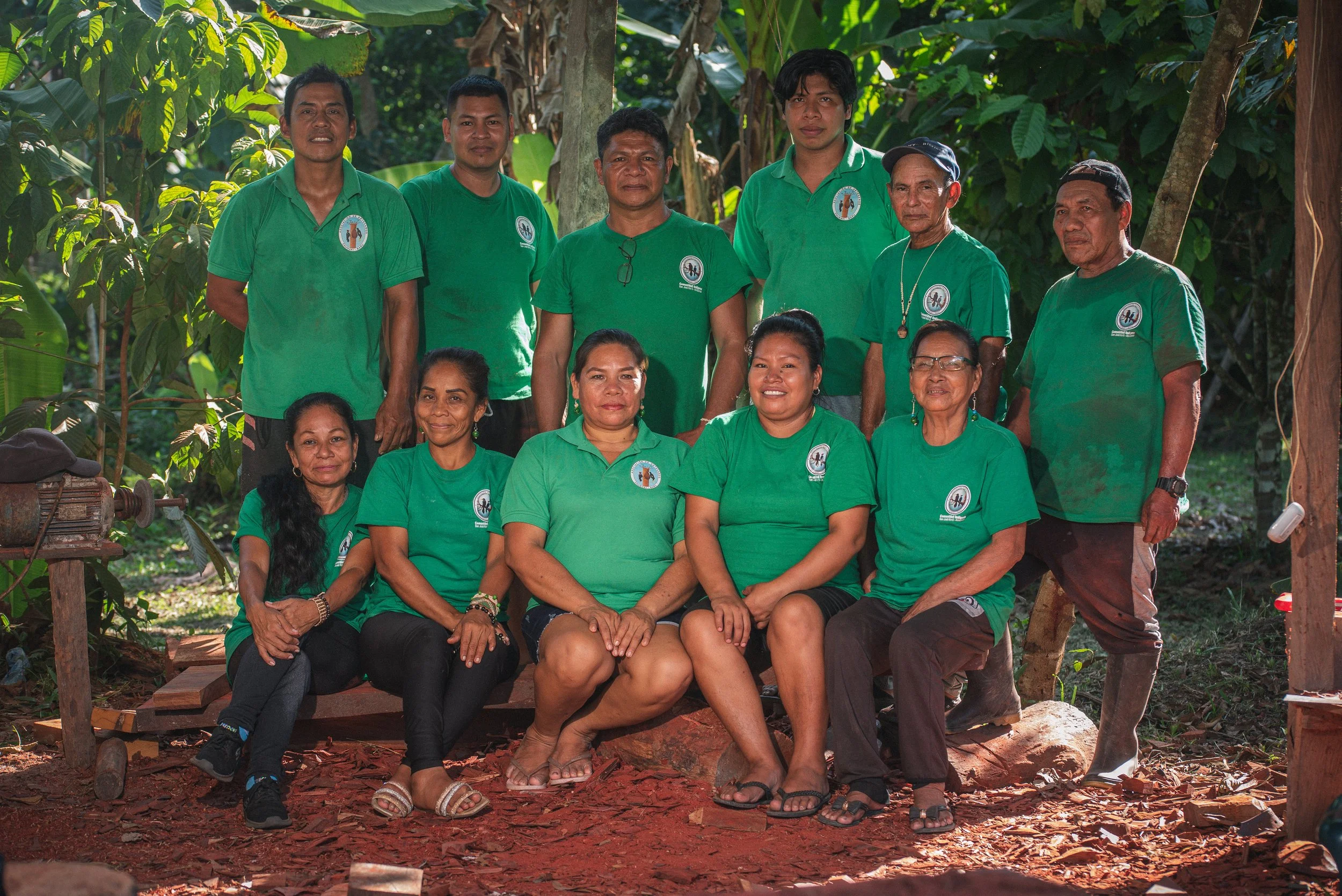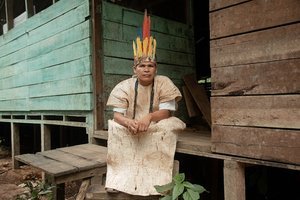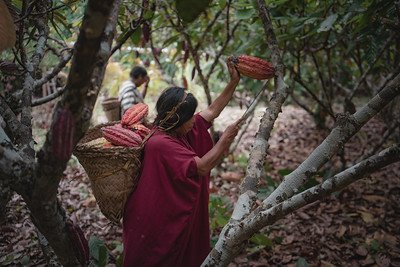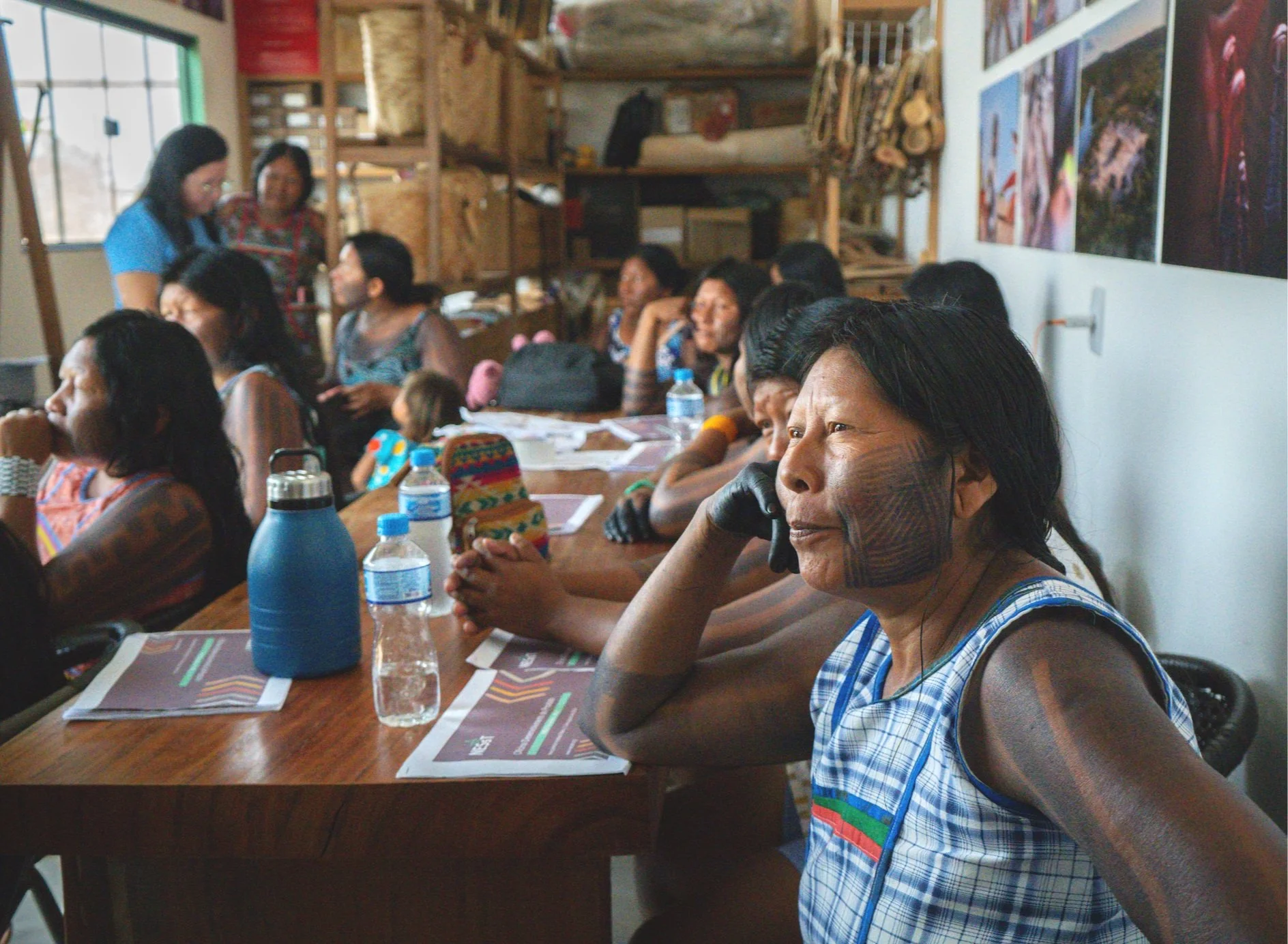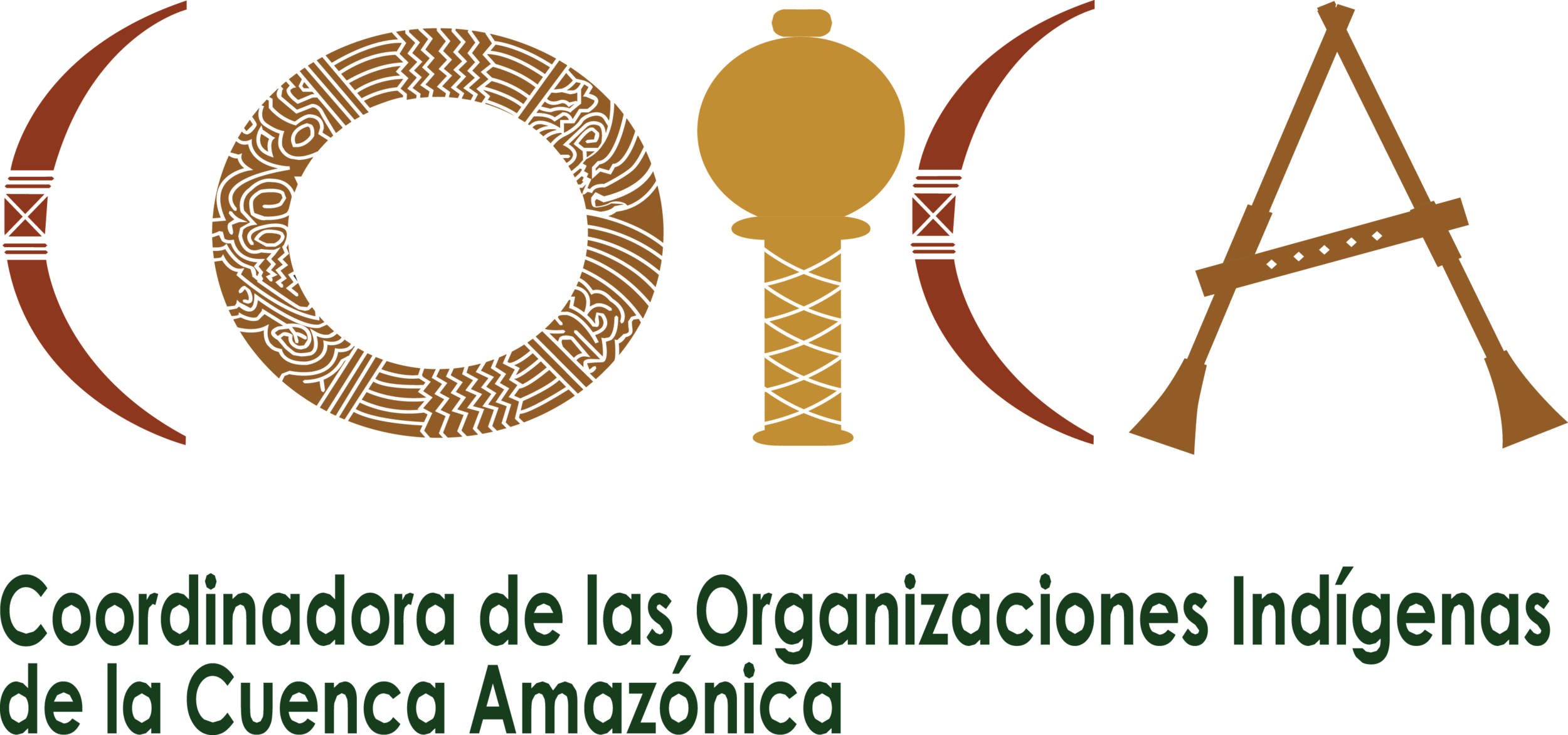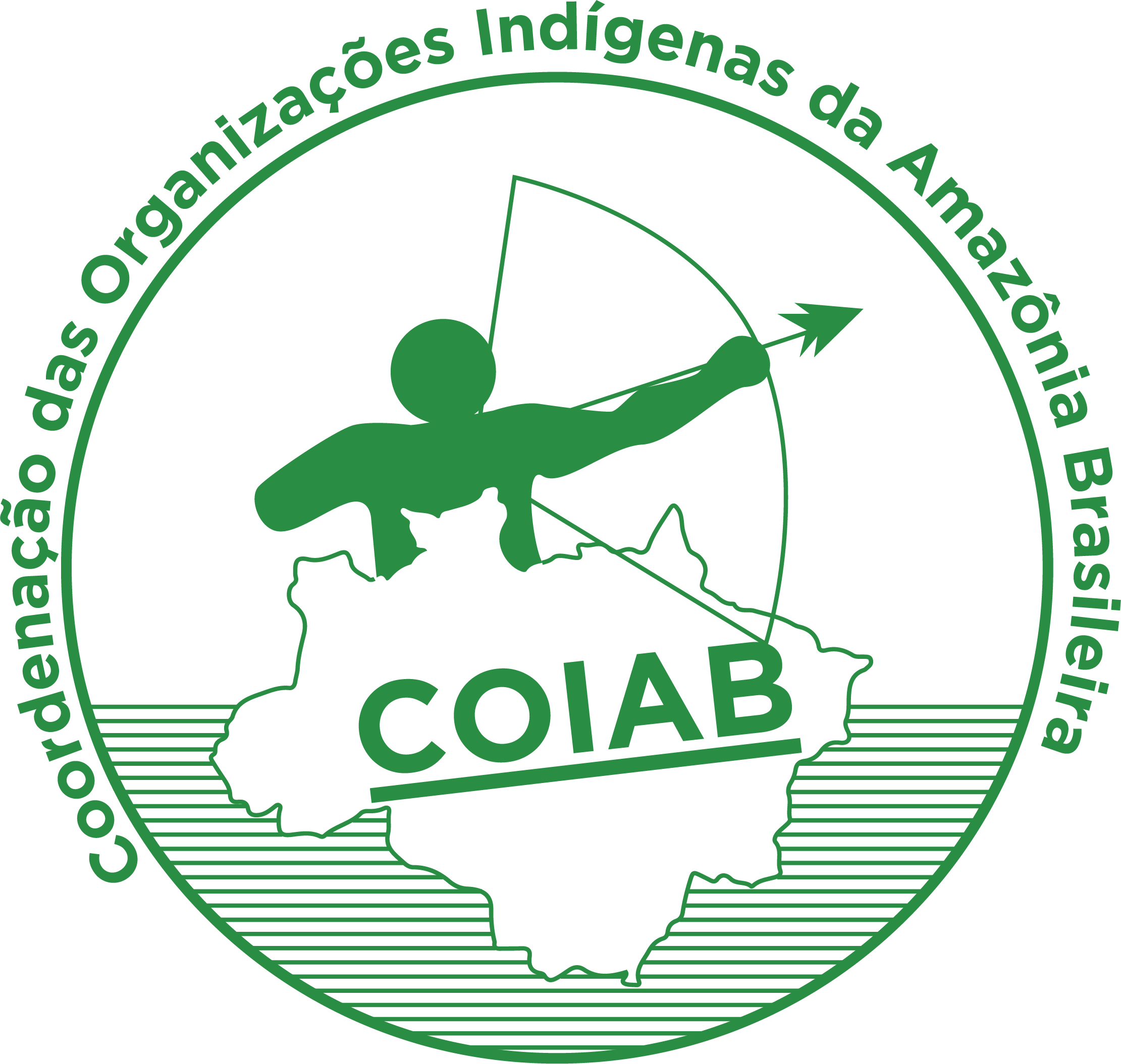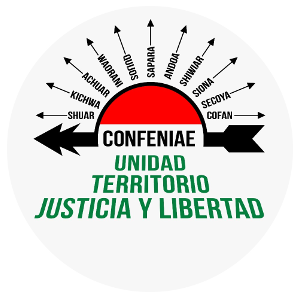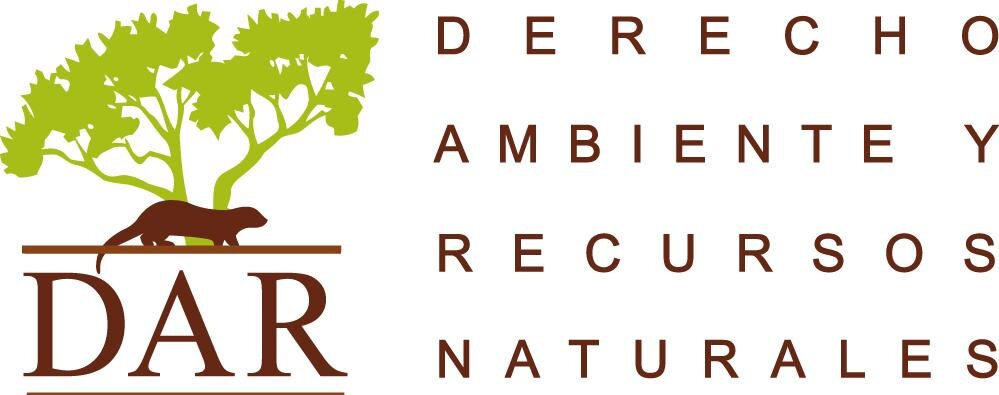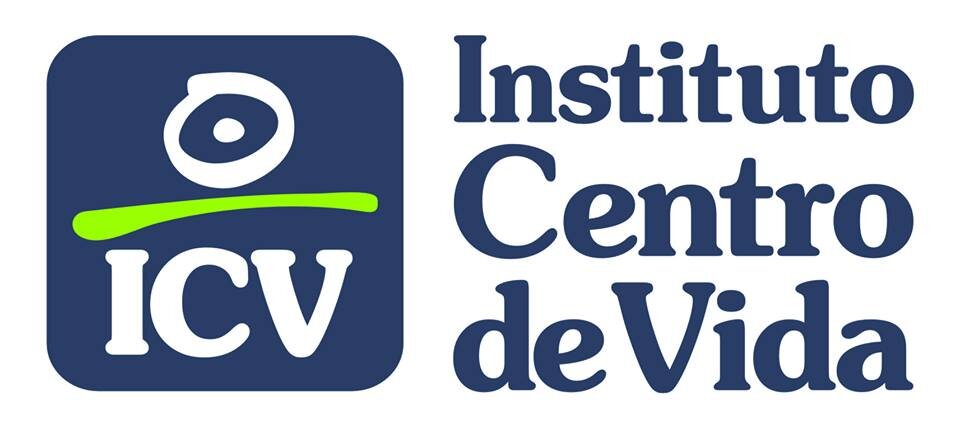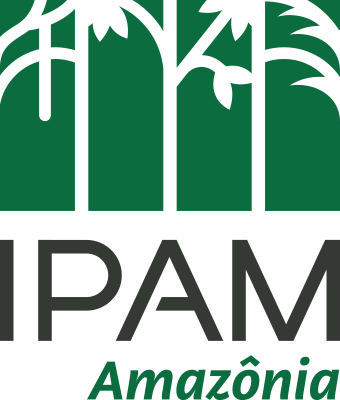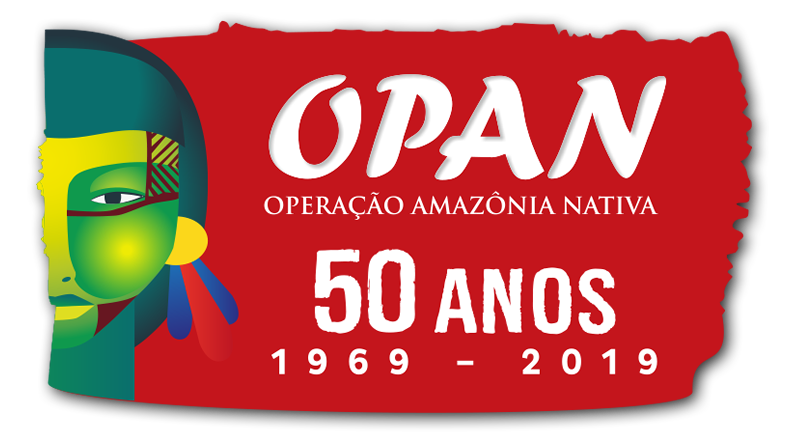Photo: Kemito Ene

But the Amazon could disappear in our lifetimes.
Deforestation and unsustainable development has led to ecosystem stress, increased fire occurrence, and a rise in carbon emissions that threaten the lives of communities living in the Amazon first, and the global climate.
Photo: Kotsimba Lodge
NESsT Amazonia
NESsT Amazonia fosters a sustainable, thriving socio- bioeconomy in the Amazon. It achieves this goal by accelerating businesses that contribute to sustainable value chains while respecting and embedding natural cycles, ancestral practices, and community-led governance. Enterprises in the NESsT Amazonia portfolio include climate-smart solutions, Indigenous-led enterprises, and companies that are led by, engage regularly, and are in partnership with local communities.
The program puts a strong emphasis on creating sustainable livelihoods that care for the forest. The program applies a gender-lens approach to ensure women can make dignified incomes from the harvesting, managing, and monitoring of forest resources.
NESsT Amazonia operates in areas of high biodiversity of the rainforest across Brazil, Colombia, Ecuador, and Peru, including protected areas, reserves, and regenerative conservation units, as well as their buffer and transition zones.
Impact
30,365
jobs created or maintained
200+
Indigenous communities impacted
108
enterprises financed
750
enterprises mapped
20
value chains evaluated and monitoring
298,334
lives positively impacted
As of December 2025
Indigenous Leadership in Action

Photo: Kanuja
Traditional communities - either Indigenous, riverine, or Afro-Brazilians - have been the traditional custodians of the Amazon rainforest. Today they share the forests with a growing number of settlers who seek to tap into the Amazon's considerable natural resources.
NESsT Amazonia supports Indigenous enterprises emerging to connect remote areas of the Amazon to sustainable markets, including in eco-tourism, fisheries, superfoods including coffee and cacao, nuts, seeds, and plants for medicinal or cosmetic uses (such as andiroba, muru muru, as well as ucuuba).
While they may not yet meet the traditional standards of investment-readiness and commercial viability, these early-stage Indigenous eco-enterprises have the potential to improve living conditions and regenerative conservation in the Amazon basin at scale.
Regional Indigenous Incubator for the Amazon
From 2023–2025, NESsT supported a pilot program with Indigenous Peoples to strengthen a network of 13 bioeconomy enterprises across Colombia, Ecuador, and Peru and support a holistic, long-term vision for the Amazon.
Learning from the Amazon Socio-bioeconomy
The Amazon socio-bioeconomy has emerged as a thriving economic sector, drawing in many investors with climate commitments. Yet most definitions of the socio-bioeconomy do not mention the role of Indigenous Peoples in safeguarding the environment and boosting local economies.
Between 2022 and 2023, NESsT conducted 40 face-to-face interviews with smallholder farmers, community members, and leadership teams from ten bioeconomy companies in the NESsT Amazonia portfolio, in order to better understand their financing needs and growth challenges.
Based on these local voices and immersive fieldwork, our publication ‘Unlocking the Potential of the Global Funding Ecosystem to Invest in a Sustainable Amazon Bioeconomy through the Lens of Local Communities’ identifies nine key opportunities in two main areas for public and private sector investors to improve the targeting, accessibility, effectiveness, and efficiency of their investments in the Amazon region.
We invite you to download the study and its recommendations below and join our commitment to create an enabling financial environment that fosters Indigenous entrepreneurship, contributing to a prosperous, sustainable, and inclusive Amazonian bioeconomy, with local and Indigenous communities at its center.
Meet the Amazonia Portfolio
The Associação Bebô Xirin do Bacajá (ABEX) is an Indigenous association that represents the Mebengokrê – Xikrin People of the Trincheira Bacajá Indigenous Land (TITB), defending and
Social enterprise Apoena was founded in 2021 to improve the safety, efficiency, and quality of cassava processing for local farmers. The social enterprise collaborates closely with cassava flour producers to enhance their working conditions and providing training in organic farming and cassava processing techniques.
One of the most renowned social organizations in the Brazilian Amazon, ASPROC supports local riverine communities to produce and sell biodiverse products sourced exclusively from the rainforest, including pirarucu fish, manioc flour, natural rubber, and açaí.
ASSOAB has been supporting small Brazil nut collectors in Beruri, Amazonas since 1970, generating stable income for the isolated communities while respecting their traditional livelihoods and the environment.
ATAIC is an association dedicated to generating and expanding income opportunities for local families by sourcing fruits and Amazon oil seeds.
Cooperativa Mista dos Povos e Comunidades Tradicionais da Calha Norte (“COOPAFLORA”) was created in 2019 to represent collecting families from the various Indigenous, Quilombola, and settler territories in the Calha Norte of the Brazilian Amazon.
Based in Maués, Amazonas, ASCAMPA is a community association that aims to improve the livelihoods of local smallholder farming families, many of whom are of indigenous ancestry. Its main product is the Guaraná seed, a native Amazonian superfood known for its energy-boosting benefits.
Elysios is an agrotechnology company that seeks to ensure that family farmers have access to the technological tools and assistance they need to produce quality products in a sustainable manner.
ManejeBem provides digital tools and technical assistance to rural farming families to enhance their agricultural processes and improve their incomes.
Plantus, founded in 2010, develops and manufactures natural and organic inputs for pharmaceutical, cosmetics, and food industries. Led by an all-women management team, the social enterprise is committed to creating income opportunities for local communities while safeguarding the planet.
Asociación de Mujeres Indígenas Trabajadoras de La Libertad (AMITLI) is a women-led association in the remote rural area of the Vaupés in the Colombian Amazon – a region marked by poverty, lack of infrastructure, and the presence of armed groups.
Founded in 2018, Asozhonm has developed a sustainable tourism model around these natural wonders, offering guided experiences that educate visitors while generating income for over 70 community members—many of whom previously relied on artisanal mining, fishing, or subsistence agriculture.
Bioingredientes Amazónicos (“BioIncos”) sources wild fruits from Indigenous communities in the Amazon Piedmont in Colombia and transforms them into natural oils for use in the cosmetics industry.
Chunaky Baru is an Indigenous-led association dedicated to advancing the livelihoods of artisans in the San José community in the Colombian Amazon.
Associación Intercomunitaria Painü (“Painü) was founded over ten years ago in Leticia, Amazonas to improve the livelihoods the Indigenous communities of the Yahuarcaca Lakes while protecting their territory and recovering and preserving ancestral knowledge.
Ally Guayusa is a Kichwa-led association founded in 2018 in the Ecuadorian Amazon. It brings together Indigenous community members who cultivate Amazonian fruits and products using traditional knowledge and organic practices.
Asotexkich is a women-led textile association that brings together 27 artisans – 23 women and four men – from six Kichwa communities. What began as a small initiative in 2016 has grown into a collective effort to support local families, respond to growing demand, and keep cultural heritage alive through traditional clothing.
The Indigenous-led association, Wayusa Ruku Kawsay, brings together members from 14 Kichwa communities in the Ecuadorian Amazon to grow, process, and sell guayusa (Ilex guayusa) – a sacred Amazonian plant known for its natural energizing effects. The name ‘Ruku Kawsay’ means “ancestral life” in Kichwa, reflecting the association's goals to use this traditional plant to reconnect with and sustain Indigenous knowledge and livelihoods.
Led by 25 Kichwa Indigenous community members, Ñukanchi Sacha Waysa offers cultural and eco-tourism experiences for local, national, and international visitors to the Ecuadorian Amazon, inviting them to step into their way of life. It offers visitors a chance to connect with ancestral Kichwa traditions, learn sustainable farming practices, and help protect the Amazon rainforest.
AFIMAD (The Indigenous Forestry Association of Madre de Dios) is an association formed by Amazon nut collectors as an alternative solution to the unsustainable
Kanuja was established to eliminate intermediary exploitation and ensure fair prices for coffee and cacao growers. Representing 57 communities, Kanuja plays a vital role in the region’s economic development through sustainable agriculture and community-based business.
Kemito Ene is an Indigenous-led cooperative of producers of the Asháninka nationality, from the Ene River basin, dedicated to the sustainable production and marketing of certified organic and fair-trade cacao beans, cacao-derived products, chocolate, and roasted and ground coffee beans.
Kotsimba Eco Lodge SAC is a community-based ecotourism enterprise that offers immersive nature and cultural tourism experiences, from full-day tours to extended packages with overnight stays.
NESsT Amazonia News
World Day of Social Justice reaffirms our commitment to poverty eradication, full and productive employment and decent work for all, and social inclusion as the interrelated pillars of social development.
Indigenous Peoples remain largely underrepresented in global decision-making spaces — revealing a contradiction between their leading role in protecting nature and their absence from the forums where environmental and economic policies are defined. This exclusion is no coincidence: it reflects historical, linguistic, financial, and political barriers that limit the access of those who live in and protect the territories to the tables where the future of biodiversity and the economy is decided.
Beginning next week, NESsT will participate in COP30 Brazil, in Belém, Pará — a historic conference that will place the Amazon at the center of global climate discussions and mark the largest Indigenous presence ever recorded in UN negotiations. We will be there alongside entrepreneurs from our Amazon portfolio, bringing experiences born in the territories and showing that the most effective climate solutions come from those who live in and protect the forest.
Today, only a small share of the credit offered by financial institutions reaches those who protect the forest. If governments and multilateral organizations work together to change this, sustainable businesses can thrive — and so can the Amazon.
In this article, Renata Truzzi, NESsT Chief Impact and Operations Officer, shares her reflections from Impact Minds 2025 by Latimpacto, weaving together her own insights with voices and stories from the event, showing how collective action, ancestral knowledge, and community-led approaches have the potential to shape the future of impact investing.
In the first half of 2025, Lirio Fund enterprises Kulkao, Lagunas de los Condores, and Pebani received repeat loans from NESsT, reflecting our continued confidence in the enterprises’ business models and impact. Read to learn more about their continued impact and growth as part of our fund portfolio.
NESsT announces today that it has joined the Sustainable Connections Institute (Conexsus), the Inter-American Development Bank (IDB), and the Green Climate Fund (GCF) in AmazonBeEco, an unprecedented four-year initiative to support the sociobioeconomy in the Pan-Amazon region.
Our work on the ground in Brazil’s Amazon region has consistently shown that increasing women's participation is critical for the socio-bioeconomy to become a robust and sustainable national development strategy.
In this blog, we speak with bioeconomy entrepreneurs to better understand the challenges they face when applying for funding from multiple sources. Read it now to learn how complex application criteria and reporting demands impact their businesses and explore actionable recommendations for how the funding community can help ensure more equitable, inclusive access to financing.
NESsT’s recent study and extensive research identifies that the term ‘bioeconomy’ is often broadly interpreted by bioeconomy funders and global policymakers, sometimes straying far from a vision of environmental stewardship. We interviewed Indigenous leaders and entrepreneurs as part of ongoing efforts to deepen our understanding of their perspectives, vision and expectations of the bioeconomy as not just as an economic model, but as a way of life rooted deeply in ancestral tradition.











